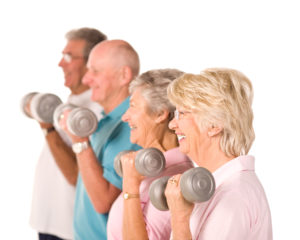Did you know that after people turn 30 years old, they start losing a bit of bone mass. However, just because this happens, that doesn’t mean people should keep letting their bone mass decrease. There are actually many ways that the elderly and their elderly care aides can stop the loss of bone mass. In order to do that, however, they need to know more about some of the most common reasons for the loss of bone mass.
Keep reading here to help your elderly loved one and their elderly care providers learn more about this.
Calcium Consumption

Did you know that people who don’t consume enough calcium will have weaker bones? Weaker bones can mean more loss of bone mass. If you are caring for your elderly loved one, you should make sure they are getting enough calcium in their diet. If elderly care providers are the primary caretakers around the times when your elderly loved one is eating, be sure they have the food on hand that has high levels of calcium in it. This way, they can encourage your elderly loved one to eat more of it.
Physical Activity
Another one of the common reasons why there is more loss of bone mass in some elderly people is because they aren’t getting enough physical activity. If your elderly loved one is worried that they are going to have weaker bones, be sure they are ramping up their daily physical activity. If they are doing physical activity every day, they are less likely to suffer from bone fractures, loss of bone mass, and other bone health issues.
Medications
There are some medications that can cause loss of bone mass, as well. The most common medications that can cause this issue are anti-seizure medications and corticosteroid medications that are used long-term. If your elderly loved one has already used these medications, there isn’t anything they can do about that. However, they can make lifestyle adjustments, such as the ones mentioned above, to try to prevent more loss of bone mass.
Tips your Elderly Loved One and their Elderly Care Providers can Watch for
These are some of the most common reasons for the loss of bone mass in the elderly. Now that you are aware of these things, you can help your elderly loved one to prevent this issue. Remember, there are some things that your elderly loved one can’t do anything about in regard to losing bone mass. However, they can choose to eat healthier and exercise regularly to manage and maintain their bone health.
Sources: https://www.nia.nih.gov/health/osteoporosis
